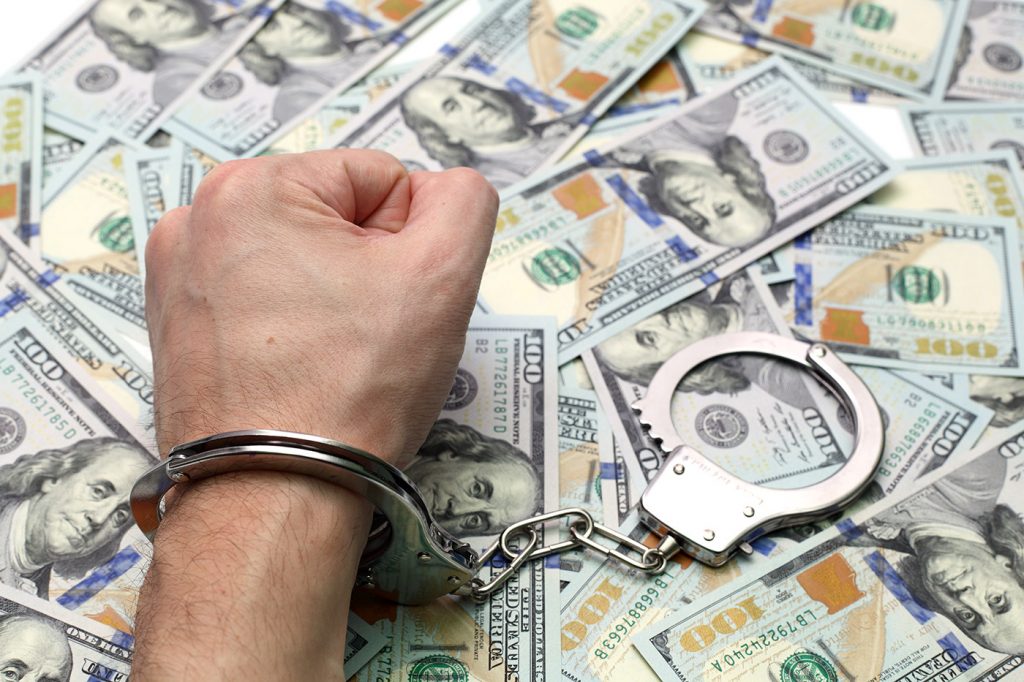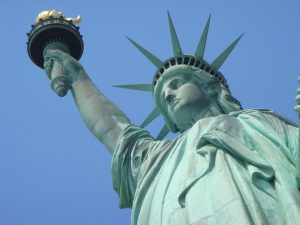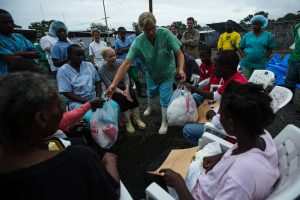Kalief Browder, an African American sixteen year old from the Bronx in New York City, was walking home from a party with his friend when he was stopped by police unexpectedly and charged with an alleged theft in 2010. The accuser, Roberto Bautista, was sitting in a police squad car and identified Browder and his friend as the thieves. The theft was a backpack that was said to contain $700 dollars, a credit card, and an iPod Touch. In his interrogation, with police, Kalief Browder insisted that he had not robbed anyone and that neither the backpack nor its contents would be found in his possession. Browder and his friend were then taken to the precinct where they were processed and taken to central booking. Within the following 48 hours Browder was interrogated and charged with robbery, grand larceny, and assault. At arraignment, bail was set at $3,000 dollars. If Browder’s family used a bondsman the amount would be ten percent plus fees or around $900 dollars for his bail to the bondsman. The bondsman would then post the entire bail amount with the court. The family could not pay $900 resulting in Browder remaining imprisoned at Rikers Island for the next three years.1


Debtors jail in colonial America was used to lock up those who owed money to the government. In today’s society, it translates into the cash bail system. 4 The for-profit bail system in the United States is used to keep those who are accused of breaking the law from harming anybody else or to be sure the accused will appear in court. If the accused is unable to pay the bail at the time of the arraignment, they may use a bondsman or they will remain incarcerated until their trial. For the poor, it is the latter. For Kalief Browder it was the beginning of the end. Only two countries in the whole world have a cash bail system, the United Sates and the Philippines. The cash bail system results in unnecessarily imprisoning citizens who do not pose as a threat to society and who most likely are not a flight risk. No pre-trial information is given to a judge before setting bail and there are no set standards on setting the amount for bail per case.5 Those who are wealthy enough to pay avoid the scarring effect prison has on one’s life. But for those who cannot afford bail, they face violence behind bars, debt, isolation, and at minimum a harsh punishment for those later found innocent, as in Kalief Browder’s case. This has created a two tier system in our judicial process. The first tier are wealthy offenders who can post bail and the second tier is everyone else who cannot afford equal justice or treatment.
Statistics show that 60 percent of people in jail from 2005 to 2015 were in jail awaiting trial. Three fourths of these individuals were accused of nonviolent crimes.6 This is alarming. On a national level, the United States imprisons persons who are essentially living in poverty and who are more susceptible to being involved or accused of a crime. In some instances, the court can grant “release on one’s own recognizance” or ROR. However, this is determined on a state by state standard. An example of this would be New York, the judicial system there would be more willing to grant ROR if the individual has a cellphone, has had a New York address for a year and has a job.7 These may seem like easy standards to meet, but consider those who are homeless, unemployed or cannot afford a cellular service on a regular basis. Their fate rests upon pre-trial bail. The bail money that the defendant does not have, requiring a bondsman, but not always attainable either.

- Johnson, Stephon “‘Time: The Kalief Browder Story’ Shows Failure of Justice System” New York Amsterdam News, March 2, 2017 http://blume.stmarytx.edu:2048/login?url=http://search.ebscohost.com/login.aspx?direct=true&db=a9h&AN=121613807&site=ehost-live&scope=site. ↵
- Schwirtz, Michael, and Michael Winerip “Kalief Browder, Held at Rikers Island for 3 Years Without Trial, Commits Suicide” The New York Times June 08, 2015 https://www.nytimes.com/2015/06/09/nyregion/kalief-browder-held-at-rikers-island-for-3-years-without-trial-commits-suicide.html. ↵
- Schwirtz, Michael, and Michael Winerip “Kalief Browder, Held at Rikers Island for 3 Years Without Trial, Commits Suicide” The New York Times June 08, 2015 https://www.nytimes.com/2015/06/09/nyregion/kalief-browder-held-at-rikers-island-for-3-years-without-trial-commits-suicide.html. ↵
- Steinberg, Robin “Robin Steinberg: What If We Ended the Injustice of Bail?” TED (June 18, 2016.) Https://www.youtube.com/watch?v=3B24RaqA33k . ↵
- Lally, Sean “Can the U.S.Radically Alter Its Cash Bail System?” (October 23, 2017) https://attorneys.us/can-u-s-radically-alter-cash-bail-system/. ↵
- Gunasekera, Yousha “Bail Means Jail: Debtor’s Prison for the Unconvicted.” Progressive 81, no6 (August 2017): 56–59 http://blume.stmarytx.edu:2048/login?url=http://search.ebscohost.com/login.aspx?direct=true&db=a9h&AN=123986116&site=ehost-live&scope=site. ↵
- King, Elizabeth “Inside the Fight to End Cash Bail” Pacific Standard January 08, 2018 https://psmag.com/social-justice/meet-the-reformers-taking-on-alec-to-end-cash-bail. ↵
- “Bail Bond Services for Waco, Texas” Kocian Bail Bonds December 14, 2015 https://www.bailbondskocian.com/. ↵
- “Bail Reform” Official Website – Assemblyman Rob Bonta Representing the 18th California Assembly District (March 29, 2018) Accessed September 21, 2018 https://a18.asmdc.org/article/bail-reform. ↵
- Gonnerman, Jennifer “Before the Law” The New Yorker December 08, 2017 https://www.newyorker.com/magazine/2014/10/06/before-the-law. ↵



123 comments
Natalie Juarez
The justice system targets the poor all too often. If you have money you can afford to commit a crime. Otherwise, you are taxed with paying for a lawyer and placing bail. In most cases, a public defender must be assigned, and they may not have the skills to properly protect their client. In other cases, like Browder’s, one cannot even afford to pay bail in the first place. This leaves them to suffer the experience of being incarcerated.
Ximena Mondragon
Congratulations on your nomination, I really like this article because it makes readers aware of how the criminal justice system is unjust. The title is a great indicator of what the bail system is in place for. People have to pay for freedom but not everyone can pay for that freedom therefore it creates a system that favors those with money. Overall, this article is well written and informative. It also keeps the reader engaged and it flows very nicely.
Gabriela Murillo Diaz
Stories like these are disheartening and bring down my faith in society. You did a great job at explaining such a tragic story. The system continues to fail people of color and it is appalling that we still have not found a solution. People like Kalief Browder deserves more than what the justice system is offering them. For-profit bail systems are only meant to help the privileged and continue diminishing the disadvantaged.
Rosa Castillo
I found this article to be well written and informative on the realities of persons being imprisoned without the proper financial resources to afford bail. The For-profit bail system most often affects communities who cannot afford the hefty fines and bail that is set to release someone who is awaiting trial. Congratulations on your nomination, this is a fantastic informative article!
Montserrat Moreno Ramirez
As i said in a previous comment, I can relate to this problem because corruption is a worldwide thing that people with money can buy a free pass no matter what. i think this is a really sad case because many times people don’t know the repercussion certain actions may bring to their lives. Congratulations for the nomination, you did a great job expressing ideas and giving interesting details to the story!
Damian Jennings
This system that we have accepted is a poor way of going about things I am quite certain that if we were to step inside the shoes of a person in this specific situation, we would love to have the option of bail, but unfortunately that is not how it works, The arguments and claims presented in this article where well plausible and I agreement with the majority of opinion and fact. Congratulations on being a nominee.
Roman Olivera
I have read a couple of articles and watch a documentary on Kalief Browder. This was a true misfortune in the life of this teenager who was held in jail for a crime that he didn’t commit and a justice system that holds a bail for a person who had not yet been convicted of crime, that any normal person cannot afford. This ultimately led to PTSD and his suicide. There is no amount of money that could bring back you he was and bring back his life after he took it. There are so many more cases like Kalief’s out there and the system needs to be fixed. This should not be how the justice system works in America but the system is broken. Sad…sad …sad!! Great article.
Nathan Alba
It does not seem to make any sense how someone can be held on bail without being proved guilty first. I do get that our society functions on money and no action is done for free, but think what if this happened to you? It seems unfair and cruel that the justice system does such a thing. Maybe shedding more light on this situation can lead to some sort of reform when it comes to the way a society treats its individuals.
Valeria Perez
This is ridiculous! How is it that the innocent are ending up in jail for crimes they did not commit because they could not pay bail?! Though the US is one of the world’s greatest political, economic, and military powers we still have a lot of changes to make to our justice system. For us to able change things we need to become educate and push for better reforms. Great article!
Lorenzo Rivera
First of all, congratulations on being nominated for an award this semester. This article was both very well written, and extremely informative. You did a fantastic job of captivating the reader and clearly explaining the topic at hand, and it is clear that your research on the justice system and the case of Kalief Browder truly aided your development of this article. It was a really great read, and very enjoyable overall. Good luck!